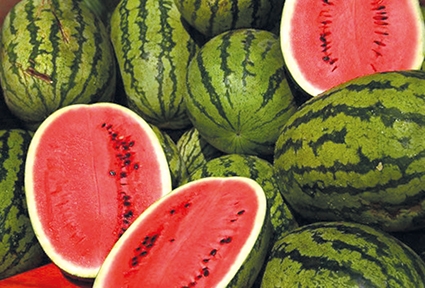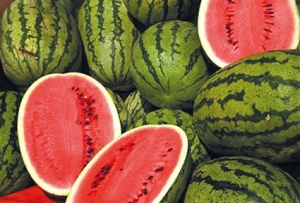Georgian Watermelon a Health Risk?
Watermelon season has truly kicked off in Georgia, but this year amid concerns that the juicy, refreshing summer fruit hides health risks.
Last week the organizations under the Consumer Rights Protection Association of Georgia examined several samples of Georgian watermelon and melon and stated they contain excessive amounts of nitrates, which can lead to food-poisoning, irritability, sleeplessness and respiration problems.
During the presentation of the results, the United Nations Expert and Ecologist Khatuna Akhalaia underlined that the level of nitrates in the watermelons and melons examined by them is 3-4 times higher than the permissible norm.
This statement has led to citizens losing trust in their favorite summer fruit, with some markets refusing to sell it.
Popular hypermarket Agrohub was the first to ban watermelons on the basis of their containing too many nitrates.
“We refuse to sell watermelon in our store because it contains more nitrates than is permitted,” the hypermarket’s Facebook post reads.
The statements angered Kakhetian farmers, Kakheti being the region where the largest amount of watermelon is grown.
The farmers say that the information about excessive nitrates in watermelon has negatively affected their business and now no one wants to buy their harvest.
“We demand that the representatives of the Agriculture Ministries come here and check the level of nitrates in our watermelons. I can assure you that our product is healthy and does not contain excessive amounts of nitrates, as stated of late,” Kakhetian farmer Khvicha Khimshiashvili said.
Specialists of the National Food Agency (NFA) are currently carrying out a study on the market for nitrates in watermelon and melon. Samples are being taken in different spots, both in large supermarket networks and at agrarian markets.
According to the NFA, about 30 fruit and vegetable samples have already been examined for nitrates in the accredited laboratory.
“As a result of laboratory research, the level of nitrates does not exceed the permissible indicator in fruit. Overall, about 70 samples are to be examined this year. We usually study nitrate content annually. According to the monitoring results of 2017, a violation was observed in only one case,” the statement says.
The statement of the NFA means that Georgian watermelon and melon are safe and can be consumed by the population without any hesitation.
In themselves, nitrates in watermelon are almost non-toxic, but with excessive intake of nitrates, the human body can begin to show signs of acute poisoning.
Excessive use of fertilizers is commonly the main source of a higher level of nitrates in fruit and vegetables because they are prone to absorbing harmful substances easily.
By Thea Morrison












